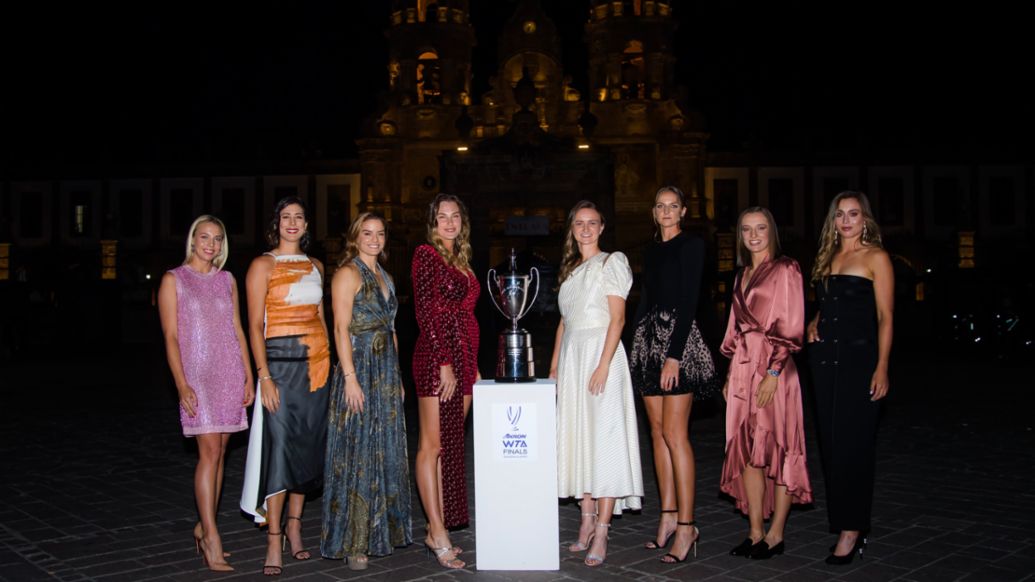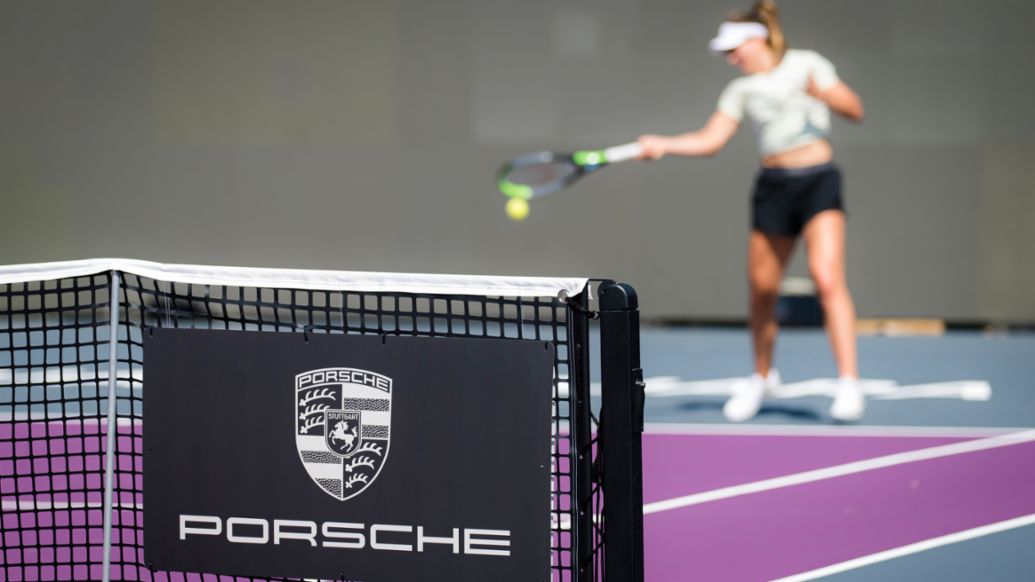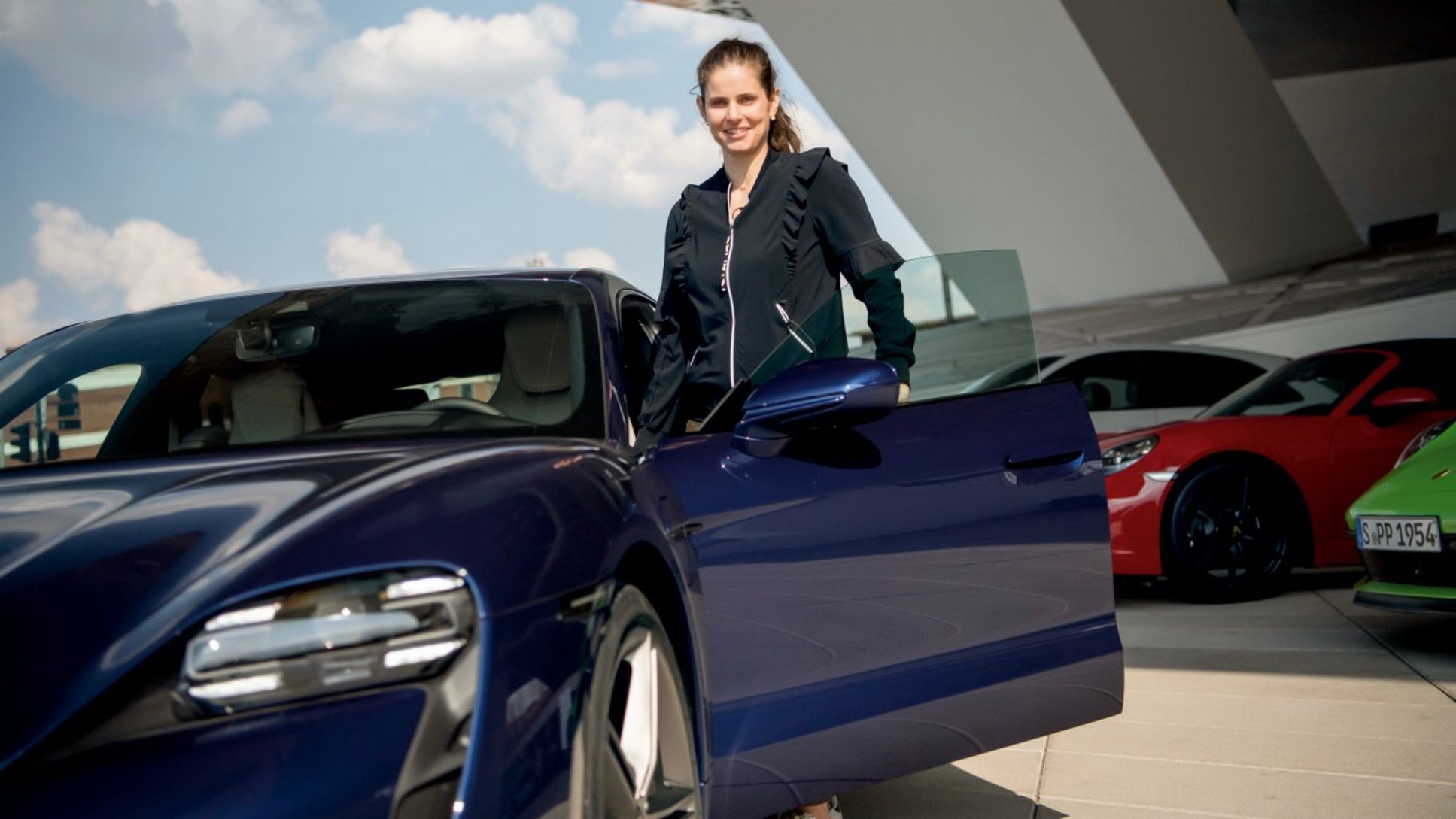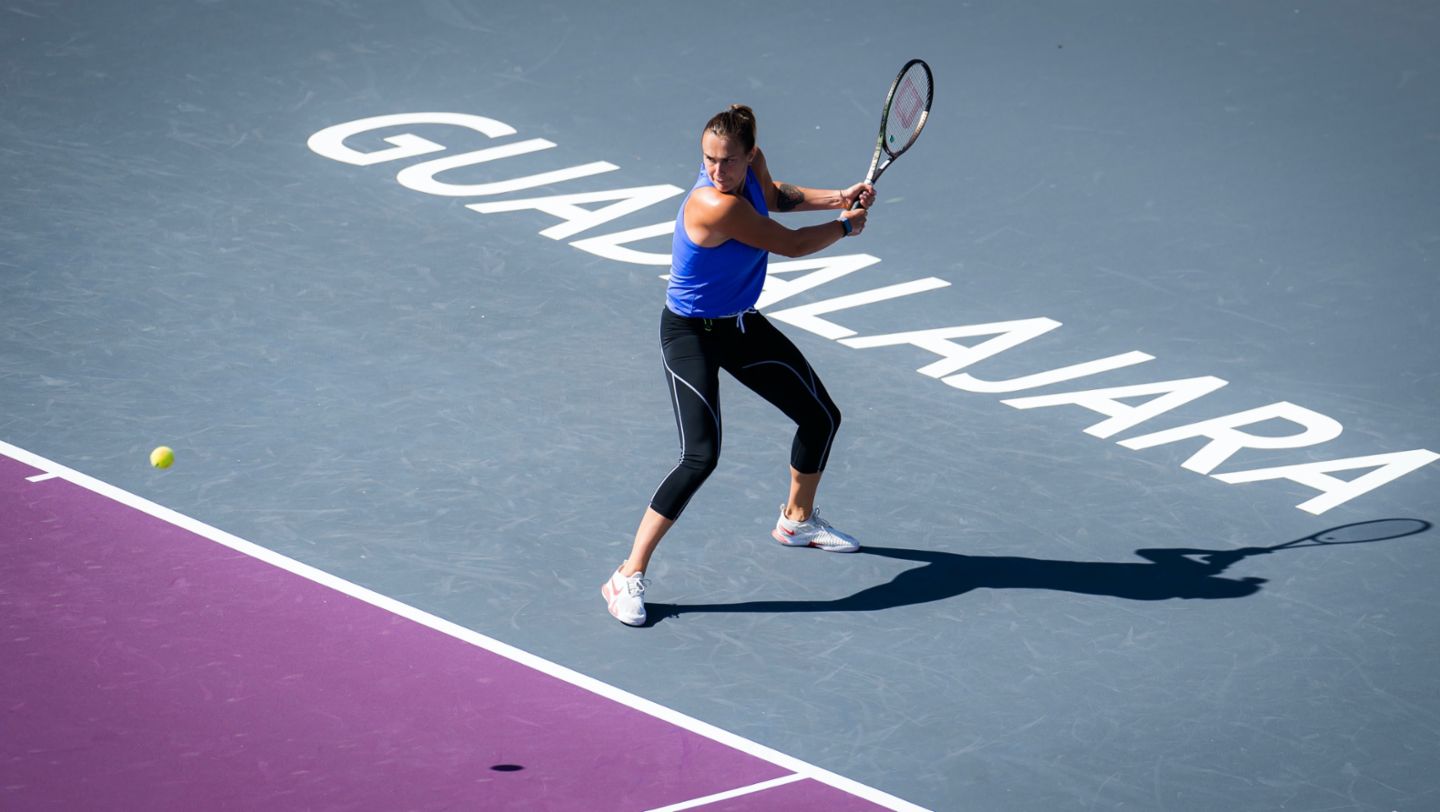Porsche has been an official partner of the prestigious year-end tournament ever since 2014. Porsche Brand Ambassador Julia Görges sees the favourites in the Pan American Tennis Center in the Mexican metropolis as being Barbora Krejcikova and Iga Swiatek – plus the promising outsider Anett Kontaveit.
“With her versatile game, Barbora is definitely capable of adapting to the special conditions at high altitude in Guadalajara. I only hope she won’t be too nervous at her first WTA Finals,” says the winner of the 2011 Porsche Tennis Grand Prix when talking about the French Open champion. In Paris, the Czech also won the doubles together with her partner Katerina Siniakova – a feat they repeated at the Olympic Games in Tokyo. The year’s most successful pairing will also be competing in Guadalajara – as one of the eight doubles teams that also booked a ticket for Mexico via the “Porsche Race to the WTA Finals”. “Iga Swiatek’s game should also make her a contender for the title,” says Julia Görges, who retired just over a year ago after enjoying a successful playing career, when speaking about the Polish 2020 French Open champion. “She has the spin that could be the key to success up at altitude in Guadalajara.”
When it comes to Aryna Sabalenka, the world No. 2 and top seed from Belarus, Julia Görges is however sceptical about her chances of claiming the title. “She has played extremely well this season, also at the Porsche Tennis Grand Prix where I watched her live in the final,” she says. “But I fear that the balls used in Guadalajara will be very difficult for her to control because she plays very flat." Due to the thin air up at over 1,500 metres, they’ll be playing with pressureless, extremely soft balls that the players are not used to. Julia Görges: “At low altitude, the balls wouldn’t bounce. They’d just roll away. At high altitude however they fly like rockets.”
She feels the Estonian Anett Kontaveit, the 2019 Porsche Tennis Grand Prix runner-up, has an outside chance of taking the title. She knows her well having previously practiced with her on many occasions. “Of all the players at the Finals, she is the one people for sure least expected to qualify,” she says. “By winning two titles in succession in Moscow and Cluj-Napoca, she’s basically made it in at the very last minute. She’s on a good run at the moment and is under the least pressure – something that will make her a danger for every opponent.”
Not only Julia Görges finds it a pity that Ashleigh Barty will not be appearing in Guadalajara. The title holder and world No. 1 from Australia – the winner of the Porsche Tennis Grand Prix in April, was a clear victor of the “Porsche Race to the WTA Finals”. She has nevertheless abstained from travelling to Mexico, something Julia Görges can well understand: “She was on the road this year for almost seven months and was not able to go back home due to the very restrictive Australian corona policy. In this extreme mental situation, she won five tournaments including Wimbledon, more than any other player. It’s an amazing achievement. The fact that she didn’t want to go into quarantine once again only to play the WTA Finals is something I can well understand. Even though the No. 1 is missing, we’ll still enjoy a thrilling and high-class Finals.”

The Akron WTA Finals
The finals will be staged in the Pan American Tennis Center in Guadalajara. After the Mexican city stepped in at short notice for Shenzhen, it will be the first time the tournament is held in Latin America. In 2022, the WTA Finals will return to the Chinese high-tech metropolis. As a part its successful longstanding partnership with the WTA, this year is the seventh time already that Porsche has been a partner of the WTA Finals. “We’re delighted that the prestigious 2021 Finals can take place once again this year,” says Deniz Keskin, Director of Brand Management and Partnerships at Porsche AG. “Despite the short-term planning due to the pandemic we and the Porsche Latin America subsidiary are looking forward expectantly to an exciting event for all the tennis fans and our customers.”
Players: the players have qualified for the long-established season-ending finals via the “Porsche Race to the WTA Finals” consisting of 54 tournaments including the four grand slams:
Chichén Iztá group: Aryna Sabalenka (Belarus), Maria Sakkari (Greece), Iga Swiatek (Poland), Paula Badosa (Spain).
Teotihuacán group: Barbora Krejcikova (Czech Republic), Karolina Pliskova (Czech Republic), winner of the 2018 Porsche Tennis Grand Prix, Garbine Muguruza (Spain), Anett Kontaveit (Estonia).
The eight top doubles teams have also qualified.
Mode: the tournament will be played as a round robin in both groups, whereby the top two players will advance to the semifinals. The singles winner will receive the Billie Jean King Trophy and the victorious doubles pairing will be awarded the Martina Navratilova Trophy.
History: the WTA Finals were held for the first time in Bacon Raton/Florida in 1972. The winner at the time was Chris Evert. The most successful player in the history of the tournament is Martina Navratilova with seven singles titles. The first German winner was Sylvia Hanika in 1982. Steffi Graf, the most successful German, won the title on five occasions (1987, 1989. 1993, 1995, 1996) – in the 1995 final against Anke Huber, now the Operating Tournament Director of the Porsche Tennis Grand Prix.

Porsche in Tennis
Porsche has been sponsoring the Porsche Tennis Grand Prix ever since 1978 and has also been the organiser since 2002. In the last vote to take place, the tournament in Stuttgart’s Porsche Arena was chosen by the players as their favourite event in its category. Within the scope of its global partnership with the Women’s Tennis Association (WTA), Porsche is also the title partner of the “Porsche Race to the WTA Finals”, the official qualifying ranking for the WTA Finals. The Stuttgart-based sports car manufacturer is also the exclusive automotive partner of the WTA, the season-ending WTA Finals and of this year’s WTA tournaments in Lyon (France), St. Petersburg (Russia), Berlin and Bad Homburg (Germany), Cincinnati (USA), Linz (Austria) and the two events in Cluj (Romania). As a premium partner of the “Deutsche Tennis Bund” (DTB – German Tennis Association), the company supports Porsche Team Germany in the Billie Jean King Cup (formerly the Fed Cup) and fosters up-and-coming players in the Porsche Talent Team and the Porsche Junior Team. Angelique Kerber, Julia Görges and Maria Sharapova give Porsche a face in tennis as Brand Ambassadors.



